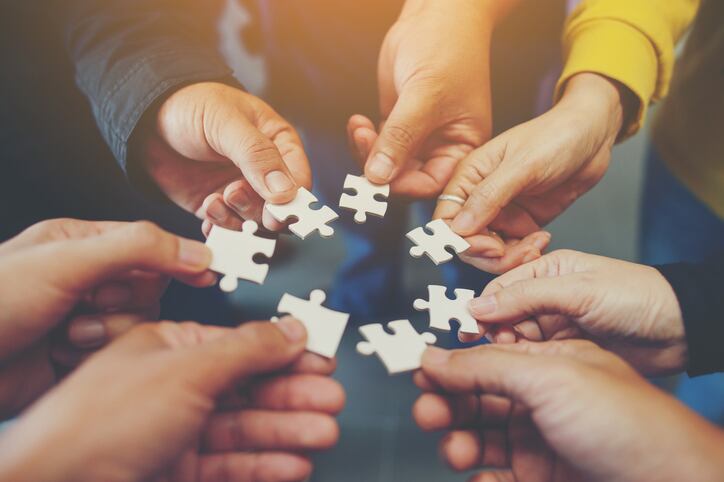Danone and the Organisation for Economic Cooperation and Development (OECD), which has 36 member countries, programmed the initiative – known as the B4IG coalition. French president Emmanuel Macron sponsored the announcement at the Group of 7 summit in Biarritz, France.
Together, participating companies employ more than 3.5m people and boast a combined revenue of $1tn.
CEO Grant F Reid said working together “demonstrates the power of leadership and collaboration.”
“Delivering on our ambitions won’t be easy. But, powered by this kind of cross-sector collaboration, we are optimistic that we can build a movement to create a tomorrow we are all proud of.”
The ‘first of its kind’ initiative laid out an ambitious plan to solve inequality through an all-for-one, one-for-all mentality – meaning corporations, governments and nonprofits must work together to achieve real change. The B4IG will adhere to three main pillars:
- First, businesses must pledge to uphold human rights, including inclusivity in the workplace and throughout the supply (or value) chain.
- Second, the group will develop an incubator to study, create or expand ‘inclusive’ business models. These ideas might entail social innovation ideas or private-public partnerships down to the micro-economic level, Mars Inc. explained in a release.
- Finally, B4IG will nurture a financial forum to spur communication among entities that have all been – to their credit – already chipping away at inequalities through their own initiatives. That means bringing businesses like Mars into the same room as the French government, for instance, along with on-the-ground advocacy groups like the International Cocoa Initiative, which strives to eradicate child labor in the cocoa industry.
The parties involved have to date shared 50-some projects, valued at $1bn, to kick-start the incubator program, according to a release. Issues focus on homelessness, pathways to employment and access to basic services like finance, insurance and transport in 'deprived and remote' regions of the G7 countries. They hope to ‘share and scale up through collaboration.’
Mars Wrigley has spotlighted its Cocoa & Women for Change program, a subsidiary of the confectioner’s Cocoa for Generations program that extols continued progress in corporate responsibility to the environment and the people within its supply chain.
Reid added that ‘mutuality’ is one of the company’s core principles.
“It isn’t about philanthropy,” he said, “but rather an understanding that a business can only be successful if it also enables all of its partners, community and the environment to thrive. That’s why we’re joining the B4IG effort to help create a more inclusive economy which enables greater opportunity for all.”
Danone on why it matters
The shrinking middle class sits at the very foundation of this coalition, said Danone chairman and CEO Emmanuel Faber. Though the middle class has gained relevance and buying power in emerging markets, he continued, “we know that beyond a certain threshold, inequalities are economically damaging. Smartphones used by Gen Z make inequalities more visible than ever and shift social consensus. The result is that market economy will not last without more social justice. It’s not a matter of ideology: it is hard realism that calls us to a collective and inclusive action, for both governments and companies.”
By promoting ‘constructive dialogue,’ power players in business, government and philanthropy can not only advise but actually create microeconomic business models that, in turn, ‘inform macroeconomic policies,’ according to Faber.
The OECD chief of staff, Gabriela Ramos, applauded the partnership, adding that “sustainable economic growth means inclusive economic growth.”
“The OECD welcomes this initiative by France to involve some of the world’s most important companies to work hand-in-hand with governments and the OECD to tackle inequalities. For our part, we will continue to lead the way in its policy analysis, research and expertise," she said.
This announcement comes just days after a group of more than 200 CEOs, members of The Business Roundtable, spotlighted a new way of viewing corporate responsibility for public companies: that a company's loyalty should not rely on shareholder approval and profit-boosting, but that employee investment, customer value and ethical practices in the supply chain and affected communities matter most.
Mars, Inc. is a private company, the sixth largest in the US, according to Forbes, with estimated annual revenue of $35bn.

